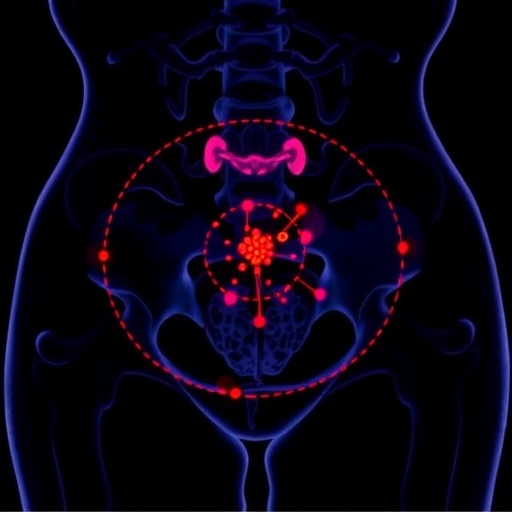In a groundbreaking dual-center retrospective study spanning over a decade, researchers from two premier Chinese tertiary hospitals have unveiled pivotal insights into the clinicopathological landscape and survival dynamics of early-stage endometrial clear cell carcinoma (ECCC). This malignancy, notoriously aggressive and relatively rare, has posed substantial challenges in optimizing treatment protocols, particularly regarding the role of adjuvant therapy following surgery. The comprehensive analysis illuminates not only prognostic indicators but also casts doubt on the routine application of additional therapy in early stages, potentially reshaping clinical guidelines.
Endometrial clear cell carcinoma, classified under the 2023 FIGO staging system as stage I and II when confined to the uterus and without distant spread, remains a focus due to its distinct biological behavior. Despite surgical intervention being the cornerstone of treatment, the necessity and efficacy of adjuvant chemotherapy or radiotherapy in these stages have long been contentious. To address this, the research aggregated extensive clinical and pathological data from 80 patients diagnosed between January 2010 and December 2023, ensuring robust longitudinal follow-up with a median duration of 76 months.
The patient cohort was predominantly stage II (70%), highlighting the clinical prevalence of deeper uterine involvement at diagnosis. The median age of 59 years aligns with typical epidemiological patterns of endometrial carcinomas affecting postmenopausal women. Within this group, the study meticulously assessed pathological features such as peritoneal washing cytology (PWC) results and myometrial invasion depth, aiming to stratify risk and prognosticate survival outcomes.
Survival analytics revealed encouraging overall 5-year progression-free survival (PFS) and overall survival (OS) rates of 87.0% and 91.6%, respectively. These figures underscore the relatively favorable prognosis for patients when detected and managed in these stages. However, the nuanced evaluation of therapeutic strategies presents critical findings: Kaplan-Meier survival curves demonstrated no statistically significant survival advantage for patients receiving adjuvant therapy in addition to surgery compared to those treated with surgery alone.
Diving deeper into prognostic factors, multivariate Cox regression analyses identified positive peritoneal washing cytology as a robust independent predictor of adverse overall survival. This finding is particularly noteworthy as PWC positivity indicates microscopic tumor dissemination within the peritoneal cavity, portending systemic disease potential despite localized staging. Alongside PWC, deep myometrial invasion—defined as involving half or more of the myometrial thickness—also independently correlated with poorer OS, reinforcing the biological aggressiveness linked to more extensive uterine wall infiltration.
An intriguing and clinically impactful discovery was the identification of diabetes mellitus as the sole significant predictor adversely affecting progression-free survival. This association suggests that metabolic conditions might influence tumor progression dynamics, possibly through mechanisms involving chronic inflammation, insulin resistance, or altered immune responses. Such a link prompts consideration of comorbidity management as an integral adjunct in oncological care for ECCC patients.
The implications of these findings are profound. Specifically, the lack of observed survival benefit from adjuvant therapy challenges existing paradigms that often recommend chemotherapy or radiation post-surgery for early-stage clear cell carcinoma due to its traditionally high-risk categorization. This calls for a more individualized approach where treatment intensification is reserved for those with definitive high-risk features such as positive PWC or significant myometrial invasion depth, rather than uniformly applied.
Moreover, the study emphasizes the necessity of integrating comprehensive preoperative and postoperative assessments including cytology and detailed histopathological evaluation. These factors can refine prognostic modeling and guide personalized therapeutic decision-making. In situations where these adverse traits are absent and metabolic comorbidities controlled, patients might be spared the morbidity associated with adjuvant regimens without compromising survival.
Future research directions stemming from this study include exploring the underlying biological basis linking diabetes mellitus to tumor progression and evaluating molecular markers that could further stratify risk. Additionally, prospective randomized trials are warranted to validate these retrospective observations and inform evidence-based revisions of treatment algorithms for early-stage ECCC.
This landmark study ultimately underscores the evolving landscape of oncologic management in endometrial clear cell carcinoma, advocating for precision medicine approaches that transcend one-size-fits-all protocols. Clinicians are urged to incorporate nuanced clinicopathological data and patient-specific factors into their decision frameworks, balancing therapeutic benefits against potential adverse effects to optimize patient-centered outcomes.
In summary, the rigorous, multi-institutional investigation provides essential clarity into the prognostic determinants and treatment efficacy for stage I-II endometrial clear cell carcinoma. By spotlighting the prognostic significance of positive peritoneal cytology, deep myometrial invasion, and diabetic status in disease progression and survival, this work challenges conventional treatment dogma and opens avenues for refined, individualized patient care pathways.
The evidence presented calls for heightened vigilance in preoperative workups and postoperative follow-ups while reconsidering routine adjuvant therapy applications. Such recalibrated strategies may enhance quality of life and resource utilization without compromising oncological integrity. As endometrial cancer incidence continues to rise globally, these insights bear important ramifications for optimizing oncologic outcomes in a demographic increasingly burdened by metabolic disorders.
This paradigm-shifting study, soon to be published in BMC Cancer, marks a significant milestone in gynecologic oncology research. It promises to engage multidisciplinary teams spanning surgical oncology, pathology, endocrinology, and radiation oncology in collaborative efforts to refine future treatment schemas based on nuanced risk profiling rather than histological subtype alone.
With growing appreciation for the heterogeneity in tumor biology and patient-specific factors influencing cancer trajectories, personalized medicine’s role in managing aggressive endometrial cancers gains paramount importance. This study robustly supports such progress, setting new benchmarks for patient stratification and tailored intervention strategies.
Subject of Research: Early-stage endometrial clear cell carcinoma (FIGO 2023 Stage I-II), focusing on clinicopathological predictors and survival outcomes.
Article Title: Clinicopathological characteristics and survival outcomes in early-stage endometrial clear cell carcinoma: a dual-center retrospective study.
Article References:
Chen, Y., Ma, Y., Yuan, H. et al. Clinicopathological characteristics and survival outcomes in early-stage endometrial clear cell carcinoma: a dual-center retrospective study. BMC Cancer 25, 1429 (2025). https://doi.org/10.1186/s12885-025-14965-5
Image Credits: Scienmag.com




